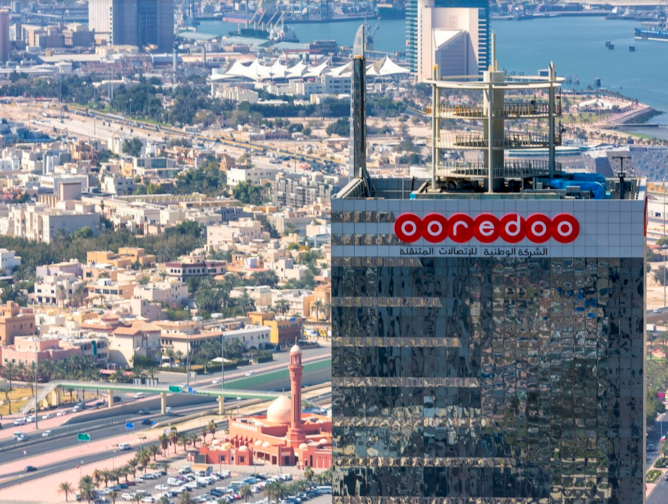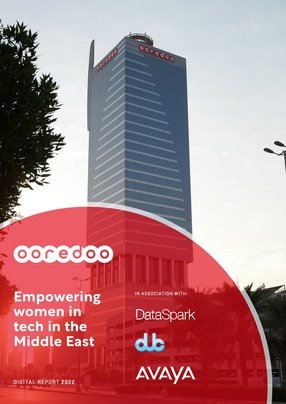Ooredoo Kuwait: Empowering women in tech in the Middle East
Step inside any technology workspace, and it’s easy to notice that most workers are not females. While this is a global problem, a lack of equal gender distribution is particularly prevalent in the Middle East.
Despite UNESCO reporting that woman make up 57% of Science, Technology, Engineering and Mathematics (STEM) graduates in Arab countries, Dina Subuh, Technology Director of Capability Management at Ooredoo Telecom, Kuwait (Ooredoo Kuwait), comments: “The turnover rate is more than twice as high for women as for men in technology jobs, with one-in-three facing gender bias at work.”
She adds: “Women lack opportunities for advancement in the industry, as well as a lack of role models and mentorship, and there are high pay gaps. Many women are leaving their jobs in technology by the age of 35 – a 45% higher rate than men.”
This underrepresentation of women in tech is a huge liability for the industry, stresses Subuh. “Those that embrace diversity and inclusion are more likely to report growth, perform better, and have an increased competitive edge,” she says.
Being a leading woman in the technology space for Ooredoo, Subuh is responsible for the digital application development and management of the company’s entire demand and delivery of commercial roadmaps, business continuity and automation plans.
“I have carved my career in the Telecommunications sector for more than 20 years. During that time, I have had a healthy progression through many positions in different companies. I first joined Ooredoo in 2008 (formerly known as Wataniya) and progressed up the ladder from a Supervisor to Assistant Manager, and I’m currently Director of Capability Management,” reflects Subuh.
Over the years, Subuh has faced many tough times managing large groups of engineers and technicians in a typically male-dominated field. “However, this did not stop me from being successful in my roles. In fact, it helped shape my personality by boosting my self-confidence and influencing people around me in everything I do,” comments Subuh.
“I particularly love my job in Ooredoo Kuwait. I feel extremely fulfilled by delivering value to our customers, paying attention to details and adopting agile and best practices in the IT domain. Ooredoo believed in my talent and gave me the opportunity to develop my leadership skills by joining Harvard Business School Executive Education – a one of a kind experience that exposed me to different cultures, perspectives, and global teams.”
For those young girls looking to build a career in technology, Subuh believes in the unique capabilities of women in their attention to detail and dedication to doing things right.
“Most of my inspirations came from women in technology in the telecommunications industry in the US, after graduating from the University of Colorado as an Electrical Engineer. For those keen to build a career in technology I would say, show up and take your seat at the table, no matter what the challenges around you. Speak up and persist to pursue your dreams, and you will get there eventually,” says Subuh.
“For others in the industry, women can best be supported by men, so make room for them, listen to them, and encourage them to express the great ideas they have, and turn all biases and stereotypes around.”
Digital transformation at Ooredoo Telecom, Kuwait
As the Technology Director of Capability Management at Ooredoo Kuwait, Subuh’s role includes developing and leading the digital transformation vision for the organization, as well as implementing IT, Network Applications IT Enterprise Applications, and Centralized Digital Platforms.
While many perceive digital transformation to be discovering and capturing new opportunities or encapsulating a radical change in technology, Subuh explains that it is a mindset. “If well-equipped in the right direction, it will lead us to a broader perspective,” says Subuh.
When it came to Ooredoo’s own digital transformation, the organization started with the basics, looking at its own existing capabilities. “We realized from our experience that the best results will come from using our current capabilities. While the current trend or myth suggests that ‘Digital requires radical disruption of the value proposition’, we found that the best results can come from ‘adaptation rather than reinvention’.
She adds: “Therefore, we started refining and simplifying our processes continuously. We closely managed the software development lifecycle to simplify and standardize the product configuration. We started to use RPA to automate product configuration, eliminate human errors and increase the process speed.
“Our Innovation strategy has set our priorities for the kinds of innovation that are most important for your organisation. This was the basis of success.”
“We have also built a testing tool from our existing skill set for our business users to perform user acceptance testing (UAT) seamlessly, without depending on us. Our Digital Solutions have been designed around the customer’s needs with personalized offerings on our mobile app. Similarly, for B2B, we built a self-service tool in which the payer can activate new lines, without depending on sales agents. In coordination with our B2B team, we can extend it to device purchases as well.”
During 2022, Ooredoo Kuwait will continue to build its digital capabilities in the Software and product development lifecycle, with the introduction of Dev-Ops methodology to automate development, inject security by design, and quality testing along the lifecycle.
“We believe this is essential for our agility and quality delivery, to further fasten time to market and delivery before the competition,” says Subuh.
Harnessing failures to drive success
“We all are bound to fail and make a wrong or bad decision in both work and life in general,” says Subuh.
“How we handle failure is more important than how we handle success. In Ooredoo Kuwait we embrace failure to understand how we can improve and bounce back better. A healthy, no-blame culture is key, as it boosts the trust among leaders and working teams. Failure should never be about the person. We encourage a self-responsible team that is continuously guided and matured to better improve our outcomes. In the end, we want our employees to be happy working and find enjoyment.”





